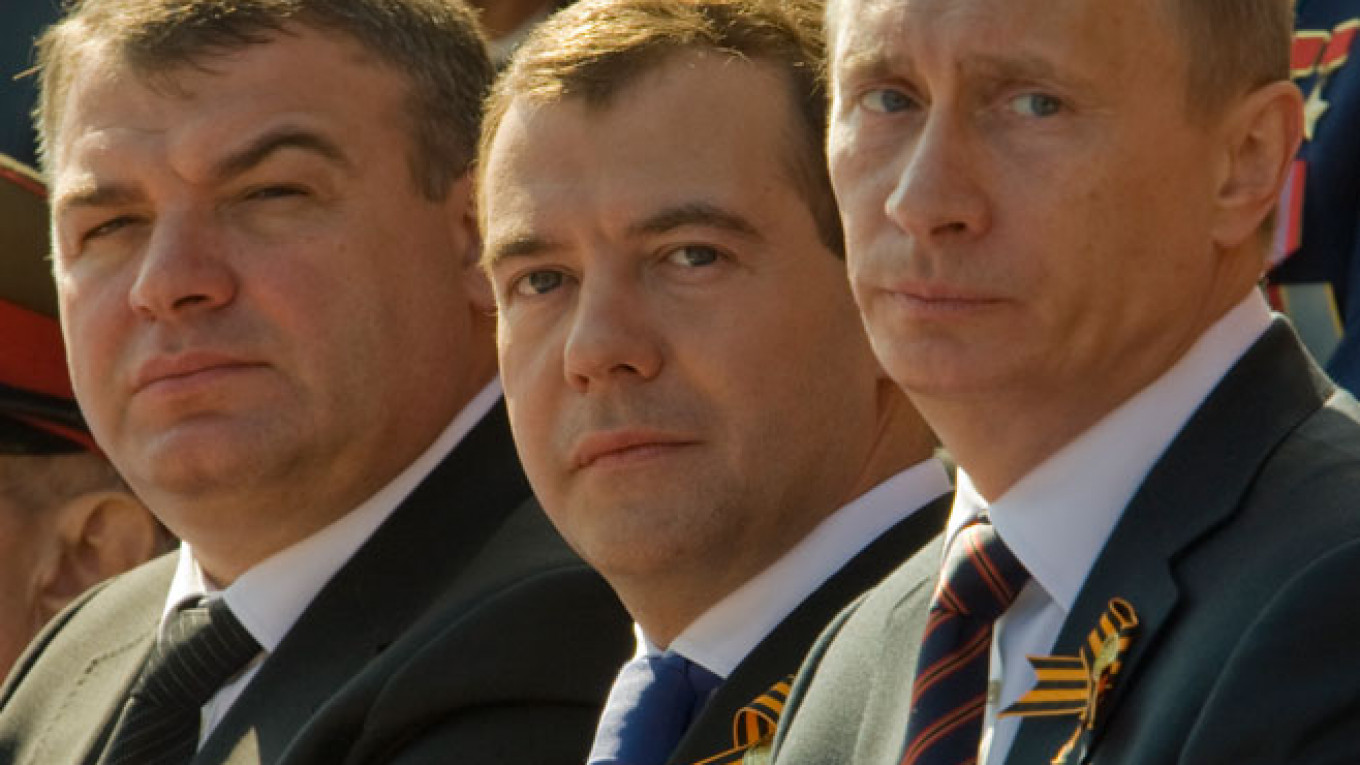In the wake of Crimea's annexation, President Vladimir Putin is enjoying astronomically high approval ratings, 86 percent by the latest polls. Moscow is awash with the St. George's ribbons representing pride in Russia and its annexation of Crimea.
It could not have come at a better time. Prior to Crimea, Putin was facing ever-increasing challenges to his regime. Activist band Pussy Riot dominated the West's discussion of Russia, the kleptocratic stylings of his inner circle were exposed by political activists like Alexei Navalny, and even his illustrious plans for the Sochi winter Olympics were plagued by accusations of corruption.
Yet Crimea may be remembered for more than being just a low point in relations between Russia and the West. It may be remembered as the moment when Putin lost his momentum. Using foreign adventurism to gain dwindling support at home and as a distraction from domestic problems is a well-known tactic, and one that is by no means unique to Russia. But it is a temporary fix, even if it is prolonged by the continued unrest in Ukraine. And, once the enthusiasm for Crimea dies down, Putin will have few targets with which to distract the Russian people from their increasingly dire economic situation.
Moscow has excelled at blaming the “other” for the ills and setbacks that continually hound Russia. The LGBT community has been silenced, NGOs are under continual harassment and political activists find themselves charged, convicted and sentenced almost on a bimonthly basis. However, the political mileage from attacking and ostracizing those that are deemed as the “other” has all but been used up as those groups either go silent or emigrate.
Many vulnerable but mainstream groups have already been attacked. The elites have been ostracized for sending their wealth abroad, a much-vaunted but hollow anti-corruption campaign has been waged, and the media has been effectively brought under state editorial control.
Now Putin’s praetorians are beginning to attack each other in their search for new targets. Accusations, investigations, charges and even the odd police general jumping out a window are signs of increasingly cannibalistic competition among the myriad of Russian security agencies.
Crimea has also dashed the hope that Russia would support entrepreneurship over continued reliance on natural resources. State monopolies and the oil and gas sector are to remain the champions of the economy as sanctions sap investors’ confidence in Russia. Ukraine’s crisis, taken alongside Putin’s repressive politics, has also led to the emigration of the intellectuals and entrepreneurs needed to propel Russia’s economy.
This threatens more than simple growth projections — it threatens the implicit agreement which has allowed Putin to stay in power so long. Putin is allowed to rule, even in an increasingly authoritarian way, as long as stability and the standards of living rise. That agreement is under threat as the economy shifts from a free market to an oligopoly, with only a few sectors propelling the economy.
Russia is now more isolated, economically precarious and what may prove to be socially restless than at any previous point in Putin’s long leadership. The outburst against his return to the presidency, which was viewed by many as breaking the trust between the governor and the governed, has been tempered by Crimea, if only for a short time.
But as the freedoms of Russia’s increasingly modern, internationally exposed society constrict, Putin may no longer have the economic means to placate his citizens in exchange for their loyalty.
What was his triumph, history may prove to be his undoing.
Andrew S. Bowen is a columnist for The Interpreter, a Russian language and translation journal, and a Ph.D candidate in Political Science at Boston College.A Message from The Moscow Times:
Dear readers,
We are facing unprecedented challenges. Russia's Prosecutor General's Office has designated The Moscow Times as an "undesirable" organization, criminalizing our work and putting our staff at risk of prosecution. This follows our earlier unjust labeling as a "foreign agent."
These actions are direct attempts to silence independent journalism in Russia. The authorities claim our work "discredits the decisions of the Russian leadership." We see things differently: we strive to provide accurate, unbiased reporting on Russia.
We, the journalists of The Moscow Times, refuse to be silenced. But to continue our work, we need your help.
Your support, no matter how small, makes a world of difference. If you can, please support us monthly starting from just $2. It's quick to set up, and every contribution makes a significant impact.
By supporting The Moscow Times, you're defending open, independent journalism in the face of repression. Thank you for standing with us.
Remind me later.






